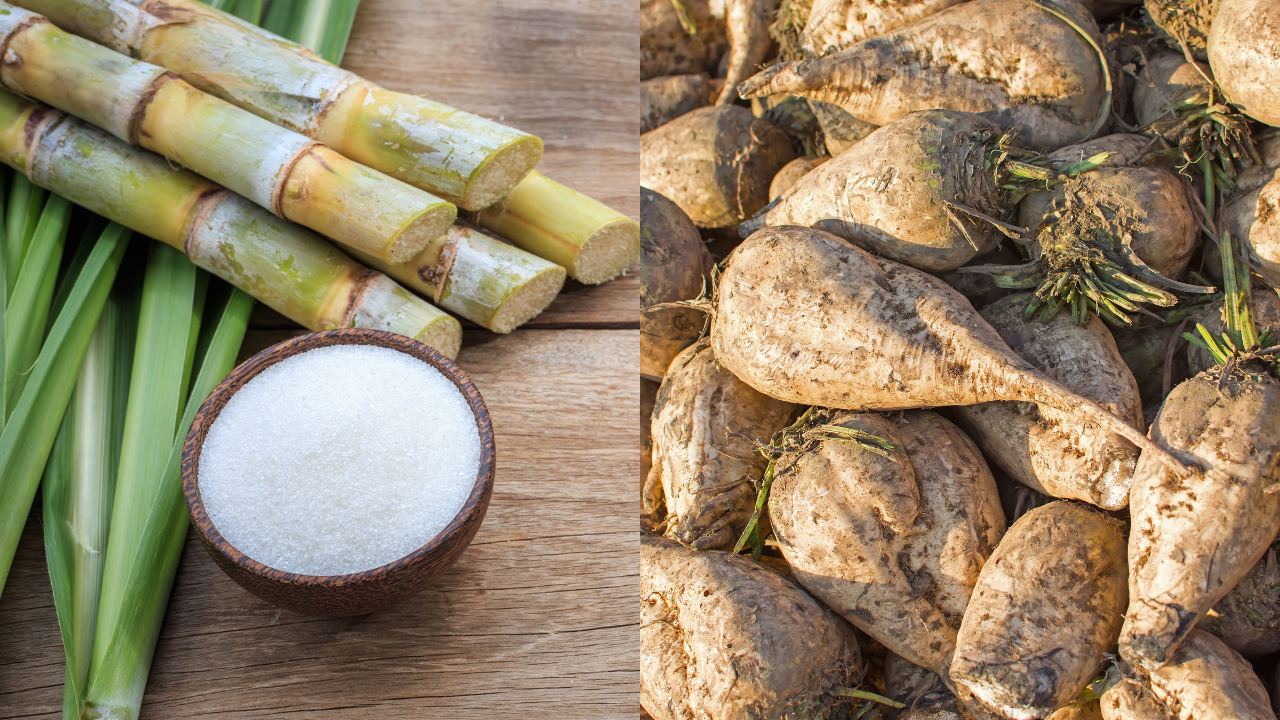The debate on beet sugar vs cane sugar often is about processing methods and composition.
The debate on beet sugar vs cane sugar often is about processing methods and composition.
Blog Article
A Comprehensive Consider the Advantages and Uses of Beet Sugar Vs Cane Sugar for Sweetening Options
In the world of sweetening, both beet sugar and cane sugar offer unique advantages and culinary roles, albeit with comparable dietary profiles. While beet sugar flaunts a neutral flavor perfect for various dishes, cane sugar enriches meals with refined caramel touches. The ecological considerations of their manufacturing are starkly different, repainting an intricate picture of sustainability. This association welcomes a deeper exploration right into how each sugar influences not only our tastes buds yet likewise the earth.
Origins and Handling Approaches of Beet Sugar and Cane Sugar
Beet sugar and cane sugar, two predominant sweeteners, originate from really distinctive plants and undertake various handling techniques. Beet sugar is extracted from the sugar beet, an origin veggie, mostly expanded in cooler environments.
On the other hand, cane sugar comes from the sugarcane plant, an exotic turf. Its handling begins with gathering the cane, squashing it to get the juice, and after that steaming this liquid to create sugar crystals.
Nutritional Contrast: Beet Sugar Versus Cane Sugar

When contrasting the nutritional material of beet sugar and cane sugar, it becomes evident that both kinds offer a comparable energy worth. Each delivers regarding 4 calories per gram, mostly as sucrose, which is a simple carb. This resemblance encompasses their lack of essential nutrients; neither kind of sugar includes substantial amounts of vitamins or minerals. Both beet and cane sugar are 99.9% pure sucrose, making them basically similar in regards to calorie material and dietary account.
However, minor distinctions might emerge from the very little micronutrient that remain after handling, though these are also small to influence overall health. As an example, cane sugar can keep traces of molasses, depending upon the degree of refining, which may add minuscule amounts of calcium, iron, and potassium. Beet sugar, on the other hand, normally goes through a procedure that gets rid of these trace aspects much more thoroughly, leading to an even purer form of sucrose.
Culinary Uses and Taste Profiles
Regardless of their dietary similarities, beet sugar and cane sugar split notably in their cooking applications and taste nuances. Beet sugar, derived from sugar beetroots, normally has a really neutral preference, making it a get more favored option in baking where it seamlessly incorporates without changing the flavor account of various other components.
Chefs and home cooks alike choose sugars based upon these features. While both sugars function in a similar way in regards to sweetness and physical properties, the mild taste difference can influence the result of a meal dramatically, guiding the option in between beet and cane sugar based on the preferred outcome in culinary developments.
Wellness Implications of Consuming Beet and Cane Sugars
Although beet sugar and cane sugar are usually used reciprocally in food preparation and baking, their health and wellness implications can differ discreetly as a result of their distinct handling approaches. Both sugars offer concerning the same amount of calories and carbs per tsp, find essentially providing comparable energy contributions with no intrinsic nutritional advantages. Nonetheless, the refining process for each and every sugar can alter the existence of trace element and substances, although these variants are generally very little and not significant sufficient to influence one's health meaningfully.
The primary health worry with both kinds of sugar pertains to their contribution to too much calorie consumption, potentially resulting in weight gain, and connected diseases like type 2 diabetic issues and heart illness when eaten in big quantities. As a result, no matter the resource, moderation is type in taking in beet or cane sugars. Health and wellness experts typically suggest limiting sugarcoated in any kind of type to preserve optimal health end results.
Ecological Impact and Sustainability of Sugar Manufacturing

Conversely, sugar beet processing often tends to generate big quantities of pulp waste, which can be repurposed as animal feed or exchanged bioenergy, thus minimizing some environmental effects (beet sugar vs cane sugar). Inevitably, the sustainability of sugar production pivots on taking on more green farming techniques and waste administration techniques to reduce the environmental impact of both sugar kinds

Final Thought
In conclusion, both beet and cane sugars offer useful sweetening options, each with distinctive benefits and downsides. While they are nutritionally similar, their farming effects and taste profiles vary considerably. Beet sugar is notable for its sustainability and neutral preference, whereas cane sugar is treasured for its rich taste. Consumers need to consider these aspects, along with the ecological implications of sugar manufacturing, to make enlightened choices concerning sugar consumption that line up with culinary requirements and moral values.
Report this page